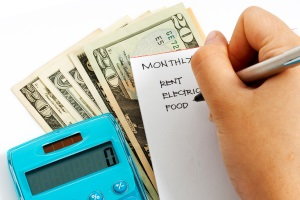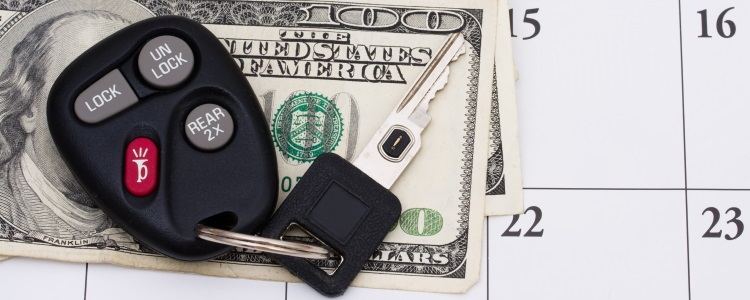When you're shopping for a vehicle, you need to have a strong understanding of your budget, what you can reasonably afford, and how much of a car payment you can handle. So, what is the average monthly car payment?
What is the Average Car Payment?
 According to the credit bureau Experian, the average monthly car payment was $502 for new cars and $365 for used vehicles in the third quarter of 2017. Experian analysts note that these numbers have increased noticeably over the past decade.
According to the credit bureau Experian, the average monthly car payment was $502 for new cars and $365 for used vehicles in the third quarter of 2017. Experian analysts note that these numbers have increased noticeably over the past decade.
A big reason why the average car payment is on the rise simply has to do with the fact that vehicle prices have gone up. Experian's data shows that the average new car loan amount was $30,329 in the third quarter of 2017. In 2008, consumers financed an average of $24,060 for a new car.
Vehicles are more sophisticated and packed with more technology, which is contributing to higher sticker prices. Also, consumer preferences have shifted away from sedans to more expensive crossovers, SUVs, and trucks.
How Auto Loan Lengths Influence Monthly Car Payments
The length of your car loan also plays a huge role in determining your payment. Monthly car payments can be found by dividing the loan amount by the loan term, while factoring in interest.
Choosing a shorter loan term allows you to pay off your vehicle faster and pay less overall due to lower interest charges. The trade-off is that a shorter loan comes with a higher monthly payment.
At the same time, extending your loan term will give you lower monthly payments in exchange for a higher overall cost due to increased interest charges. In addition to making the loan more expensive, a long-term loan also costs you future flexibility. One risk of a lengthy loan is you'll owe more than the car is worth, especially during the first few years, which makes it very difficult to sell or trade in your vehicle, and can cause problems if it's wrecked or stolen.
According to Experian, the average loan term was 69 months for new cars and 63.95 months for used vehicles in the third quarter of 2017, both of which are near record highs. Consumers are increasingly turning to longer car loans to keep monthly payments within their price range as they choose more expensive models. However, this monthly payment mentality is dangerous considering the drawbacks to longer loan lengths.
A Plan for Your Monthly Car Payment
A more well-rounded approach to buying a car is a budget that considers both the total cost you'll pay alongside a monthly payment amount you can afford.
One budgeting tip that many car buying authorities recommend is to not use more than 15 to 20 percent of your monthly income for your entire car-related budget. This includes expenses in addition to your monthly payment, such as car insurance, fuel, and maintenance. Factoring in these other expenses of car ownership will give you a much better picture of what you can actually afford.
At the same time, this budgeting tip isn't meant to steer you toward a longer loan term to get these expenses under 20 percent of your income. It's supposed to give you a better idea of a price range that realistically fits your budget.
In addition to only considering vehicles that you can really afford, you can keep your monthly car payment in check by having a down payment. Putting money down on a car will reduce the amount of your loan, which will knock down your monthly payment amount and make it easier for you to keep the term short and sweet.
Finding an Auto Loan for You
Spending time preparing your budget for a car purchase – including considering the overall cost and monthly payment – is a wise move. Making extra preparations is even more important for borrowers with bad credit.
If you're struggling with credit issues and need to finance a car, it can be tough not knowing where to turn. Luckily, Auto Credit Express makes finding financing fast and easy with our network of special finance dealerships. We'll work to connect you with a local dealer if you submit our free and secure car loan request form. Get started today.



















